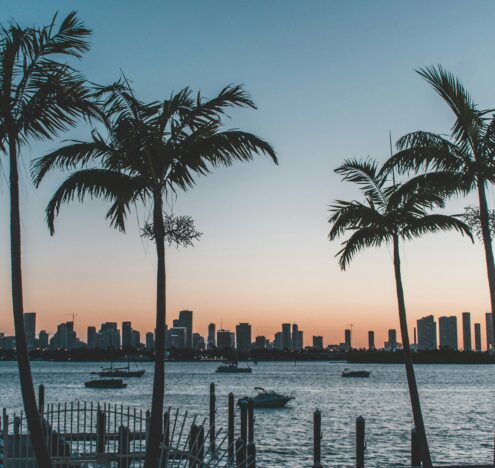This analysis was featured in Critical State, a weekly newsletter from Inkstick Media and The World. Subscribe here.
During the August 2023 heat wave, Bitcoin-mining company Riot shut down its Texas-based operations during peak demand and posted record profits despite a drop in production. (Really, “Bitcoin production” is the effort of tremendous computing power devoted to solving math problems, which occasionally generates a digital object of fluctuating value). The reason for Riot’s success? The Electric Reliability Council of Texas, which manages the state’s power grid, paid the company $31.7 million in energy credits to power down.
While Texas has a unique market approach to its state electric grid, the payoff represented an unusual moment. Why was the government going out of the way to reward a business that functionally exists to hold electricity hostage?
In “‘Our Way of Life is not up for Negotiation!’: Climate Interventions in the Shadow of ‘Societal Security,’” authors Duncan McLaren and Olaf Corry offer one possible answer. Using a “societal security” framework for climate response, they argue that many state interventions around climate change are based not on actual mitigation of greenhouse gasses or climate harm but on preserving the existing quality of life of a certain segment of the national population.
While the warming climate may threaten all life as we know it, for those already well-off, criminalization of climate protestors and climate migrants protects the wealthy from having to even consider adjusting their existing fossil fuel-dependent lifestyles.
“Drawing on recent legislation, public databases of litigation against climate protesters, and investigative journalism, as well as extant scholarly studies of the politics of climate migration and climate protests, we show that what we term societal climate securitization has already begun casting identities and lifestyles that rely on high (fossil) energy consumption as the referent object of security,” the authors write.
They draw their paper title from a statement made by President George H. W. Bush at a 1992 UN summit on the environment held in Rio de Janeiro, in which the elder Bush said that the “American way of life” was not up for negotiation.
By adopting a societal security framework, the authors can explain that “the extraordinary responses justified by climate securitization need not be directed at reducing causes of climate change or its impacts on human or ecological systems, but primarily at defending (politically dominant groups’) values, identities or ‘ways of life.’ From this perspective, responses such as climate migration and activism, or even rapid emissions mitigation in general are potentially ‘threats’ themselves warranting exceptional measures.”
In other words, while the warming climate may threaten all life as we know it, for those already well-off, criminalization of climate protestors and climate migrants protects the wealthy from having to even consider adjusting their existing fossil fuel-dependent lifestyles.
Throughout the paper, the authors draw a comparison to the Global War on Terror, in which the attacks of Sept. 11, 2001, were used to justify the expansive erosion of personal rights at home and military interventions abroad. “Deploying conventional military or cyber interventions to close down fossil fuel facilities in multiple other countries, for example, even if materially similar to foreign drone strikes against terror suspects, would appear disproportionate,” they write.
Seen from the perspective of normal markets, a Bitcoin miner taking a payout to cease operations during a heatwave (and thus ensure air conditioning stays on, saving lives) is business as usual. Were the state to seize the Bitcoin operation and shut it down, ensuring that it never held the grid hostage for a bribe again, that would disrupt the entire status quo society governments are at present trying to maintain.




















